
Fasten your seatbelt: aviation emissions are about to take off again
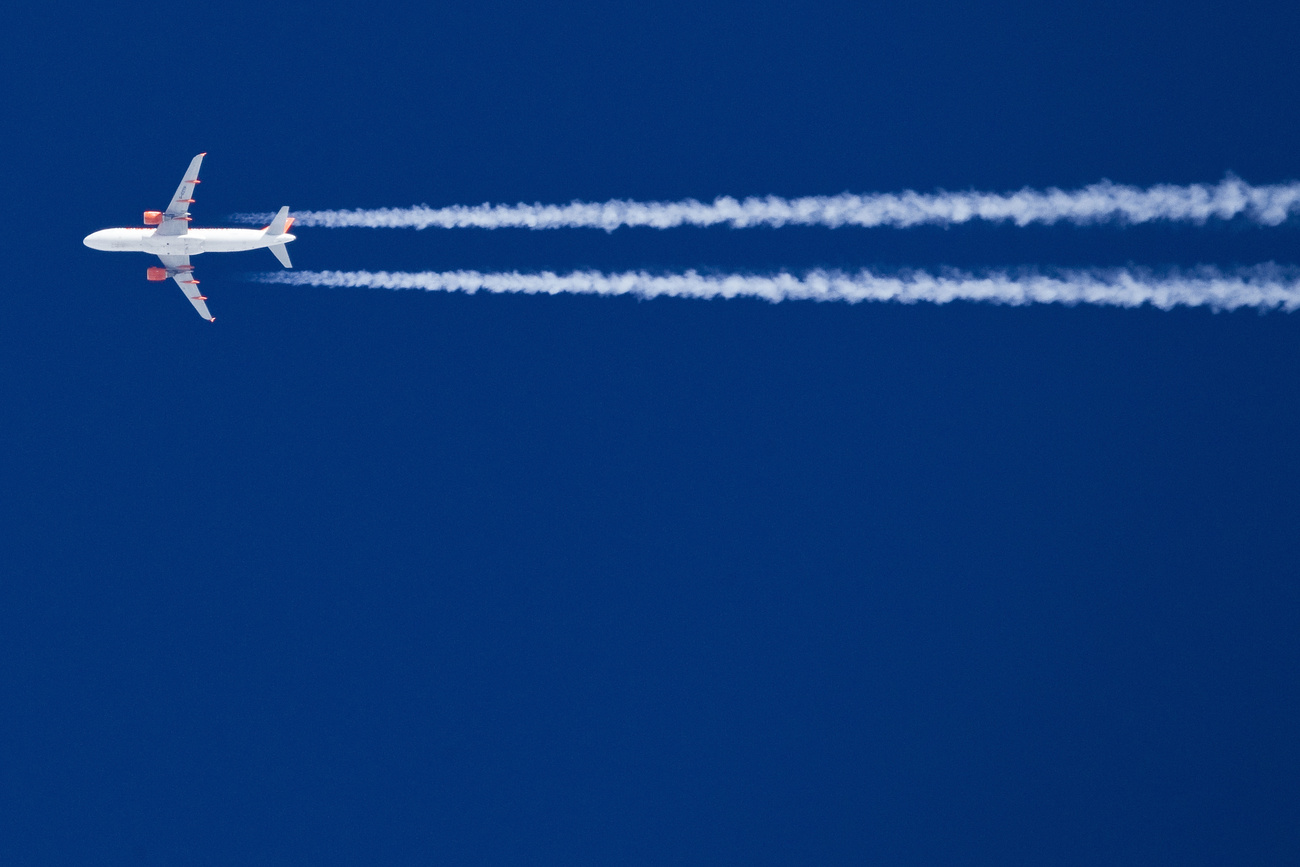
After two years of pandemic restrictions, demand for flights is soaring. Many Swiss, who are well-known frequent flyers, are keen to jet off this summer. Will CO2 aviation emissions jeopardise the country’s climate goals?
During much of the Covid-19 crisis, Geneva Airport stood eerily empty. Check-in desks and baggage carousels gathered dust, while grounded planes were parked on the tarmac. But with travel restrictions lifted, passengers are suddenly coming back in large numbers.
The main summer holiday period has not really begun, but Geneva’s main terminal is buzzing on this bright Tuesday morning in June. Trollies piled high with multi-coloured suitcases glide past. Bored travellers check their phones in long snaking queues for flights to Lisbon, Athens and Dubai. Outside, passengers enjoy last-minute cigarettes.
“Everyone I know is travelling. This is my third flight since the ‘return to normal’,” says Amella between puffs.
The young engineer from Lausanne is off to Istanbul with her mother, husband and daughter to celebrate her mum’s 50th birthday. “We had to work from home during Covid, but as soon as I could, I started travelling again,” she says.
After two Covid-battered years, strong pent-up demand, the lifting of travel restrictions in most markets and expanded personal savings are fuelling a resurgence, saysExternal link the International Air Transport Association (IATA). The industry’s global governing body plays down the current difficulties faced by European airports and airlines, such as staff shortages following the pandemic and strikes over pay and working conditions, that left them caught by surprise when passengers returned quickly.
Despite possible disruption, Geneva officials expectExternal link this summer’s airport traffic to return to 90% of the level seen in 2019. Zurich Airport predicts a similar figure. But with this stronger-than-expected recovery and renewed upward trajectory, the question of how to curb aviation emissions as part of Switzerland’s goal of becoming carbon neutral by 2050 has raised its ugly head again.
The Swiss love to fly, much more than other Europeans. Each Swiss citizen flies on average 9,000 km a year, the Federal Statistical Office estimatedExternal link in 2015.
Amella flies roughly six times a year, mostly in Europe, but two of these are usually long intercontinental flights. In February she went to the Tanzanian island of Zanzibar to go diving. But Amella admits she worries about the damage to the planet every time she takes a long flight. “I know it’s not good for the environment, but I keep on doing it. I want to see the world,” she says.
Bouncing back
She is not the only one concerned by aviation emissions. The environmental groups WWFExternal link and Greenpeace recently warned about the impact of the industry’s recovery.
“I fear we will bounce back and even go back on the increasing trajectory we had before. I hear people saying much more often ‘finally I can go away again’ than this ‘pandemic really made me think about the whole system’,” says Georg Klingler, a climate expert at Greenpeace Switzerland.
Air travel has grown rapidly in recent decades, and will continue to do so as it’s a human need, retorts Hansjörg Bürgi, editor-in-chief of the Swiss aviation magazine Skynews.chExternal link.
“In South America, Africa and Asia for the first time many people are earning enough, or they will earn enough, to travel and visit friends or family. That’s the main driver for air traffic.”
Growing share of emissions from aviation
Today, airplanes account for 2-3% of worldwide carbon dioxide (CO2) emissions, but before the pandemic their share had been growing rapidly. Global CO2 emissions could double by 2050, compared to 2019, as more people fly, as International Civil Aviation Organization (ICAO) dataExternal link shows below.
In Switzerland, aviation’s share of CO2 emissions is already higher. The country recorded 59 million air travellers in 2019, double the number of passengers since 2005. Over the same period (2005 to 2019), CO2 emissions from air traffic continued to grow an average 3% per year.
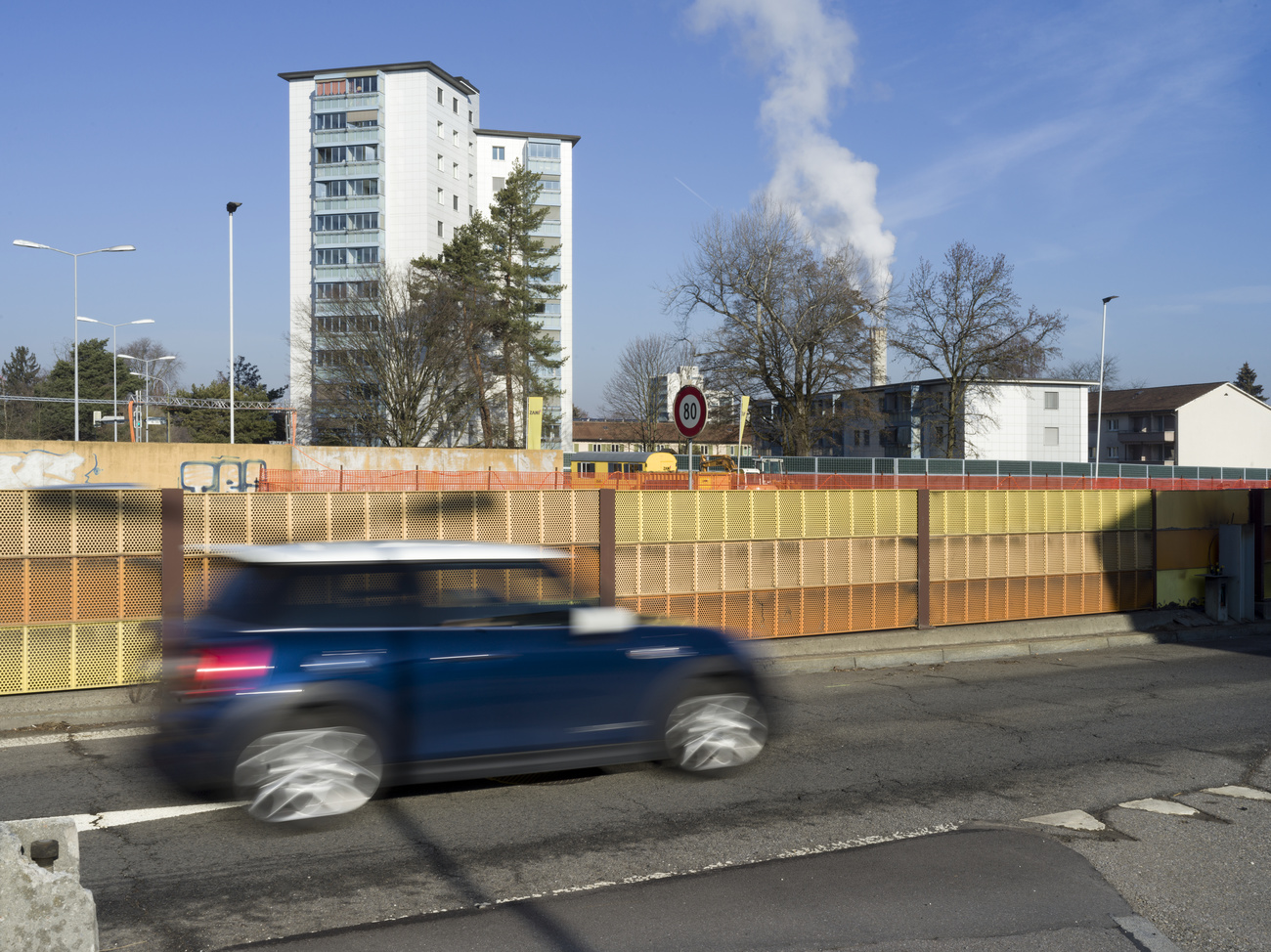
More
Switzerland misses greenhouse gas reduction target
According to the most recent Swiss figures for 2019, domestic and international flights (civil and military) represented 11% of all CO2 emissions. But scientistsExternal link and the governmentExternal link acknowledge that direct CO2 emissions generated by aviation should be weighted by a factor of three to reflect the true impact of flying on the climate (i.e., additional emissions from nitrogen oxides, sulphur dioxide, soot, and water vapour).
Recalculated in this way, planes flying in and out of Switzerland would overtake road traffic as the sector with the worst overall impact on the climate (27% of total), followed by other transport (23%), construction (18%) and industry (18%).
No government forecast exists for aviation emissions for the post-Covid period. A calculation made for the Federal Office for Civil Aviation in 2015 predicted annual growth of 3.2% in air passengers and 2.1% in number of flights for 2013-2030.
Fuelling aircraft in the long run
Aviation remains one of the fast-growing sources of emissions, and the most intractable. In the run-up to the UN climate talks in Scotland last year, the airline industry pledged to get to net-zero emissions by 2050 but admitted that hydrogen and electric aircraft would not be operating in significant numbers until the 2040s. Until then, traditional fossil jet fuels would need to be replaced by sustainable aviation fuels (SAFs), which produce up to 80% fewer carbon emissions than conventional fuel and are made from biomass (plants or waste) or recycled carbon.
In 2009, the International Air Transport Association (IATA), which claims to represent about 290 airlines accounting for over 83% of global air traffic, set itself the goal of halving CO2 emissions from air transport by 2050 compared to 2005 levels.
The UN’s International Civil Aviation Organization (ICAO) adopted in 2016 a strategy aiming for an average annual improvement in fuel efficiency of 2% by 2050. ICAO member states are set to meet in September to discuss tougher climate targets.
In early 2021, representatives of European airlines, airports, aircraft manufacturers and air traffic control bodies announced a strategy called “Destination 2050” which aims for carbon neutrality by 2050, for all flights departing from Europe (EU, EFTA, UK).
Source: Federal Office of Civil Aviation (FOCA)External link
In Switzerland, critics blame the government and industry for a lack of clear strategy to curb aviation emissions. But the authorities say they are doing a great deal.
Switzerland participates in the international CORSIA scheme to offset emissions, although the results are modest, Environment Minister Simonetta Sommaruga told parliament in May. More recently, under the revised CO2 act, the government is proposing various measures to reduce CO2 output by 2030, such as blending quotas to mix SAFs with conventional jet fuel, and funding research into SAFs. The Swiss aviation sector also wants to focus on operating planes on the ground and in the air in a more energy-efficient manner, and invest in carbon offset projects.
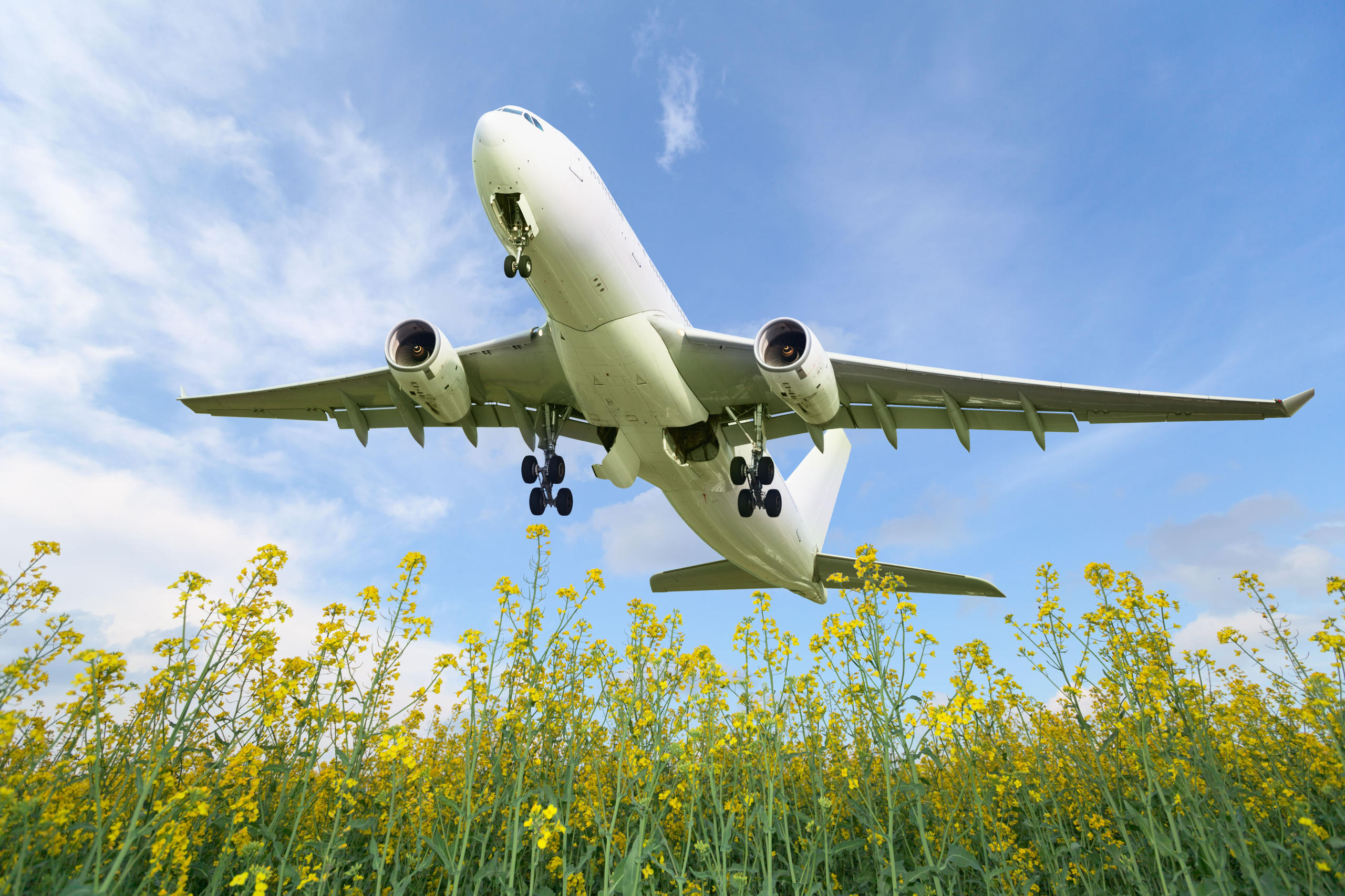
More
Swiss research institutes join quest to find best green jet fuels
Philippe Thalmann, professor of environmental economics at the Swiss Federal Institute of Technology in Lausanne, is dubious about the effectiveness of measures like offsets or more fuel-efficient aircraft to curb emissions. And, he says, alternative fuels made from biomass just create additional environmental headaches.
“The aviation sector intends to reduce its climate impact in a manner that does not involve reducing its activity,” he says. “I do not believe in any mitigation programme that does not involve less flying.”
More expensive flight tickets
One idea that could potentially reduce passenger numbers is back on the table: an air ticket levy.
The proposal was originally part of the CO2 law that was rejected by Swiss voters in June 2021. But it remains relevant, say the environmental group umverkehR and the Swiss Transport Club VCS, which are planning to launch a popular initiative next spring. A white paperExternal link released last year said a differentiated air ticket levy could reduce the number of Swiss passengers by 21%, while raising CHF1 billion a year for climate-related projects.
“We should take the risk to talk about flying being too cheap and the fact that it is still indirectly subsidised via VAT and fuel tax. Stopping those indirect subsidies is one of the most important steps. The second step would be an air ticket levy,” says Klingler from Greenpeace.
Aviation journalist Bürgi doubts a Swiss tax could work: “The environment problem has to be solved globally or at least on the European level. If you place a tax on Swiss flights, people will simply go to Milan or Munich and fly from there.”
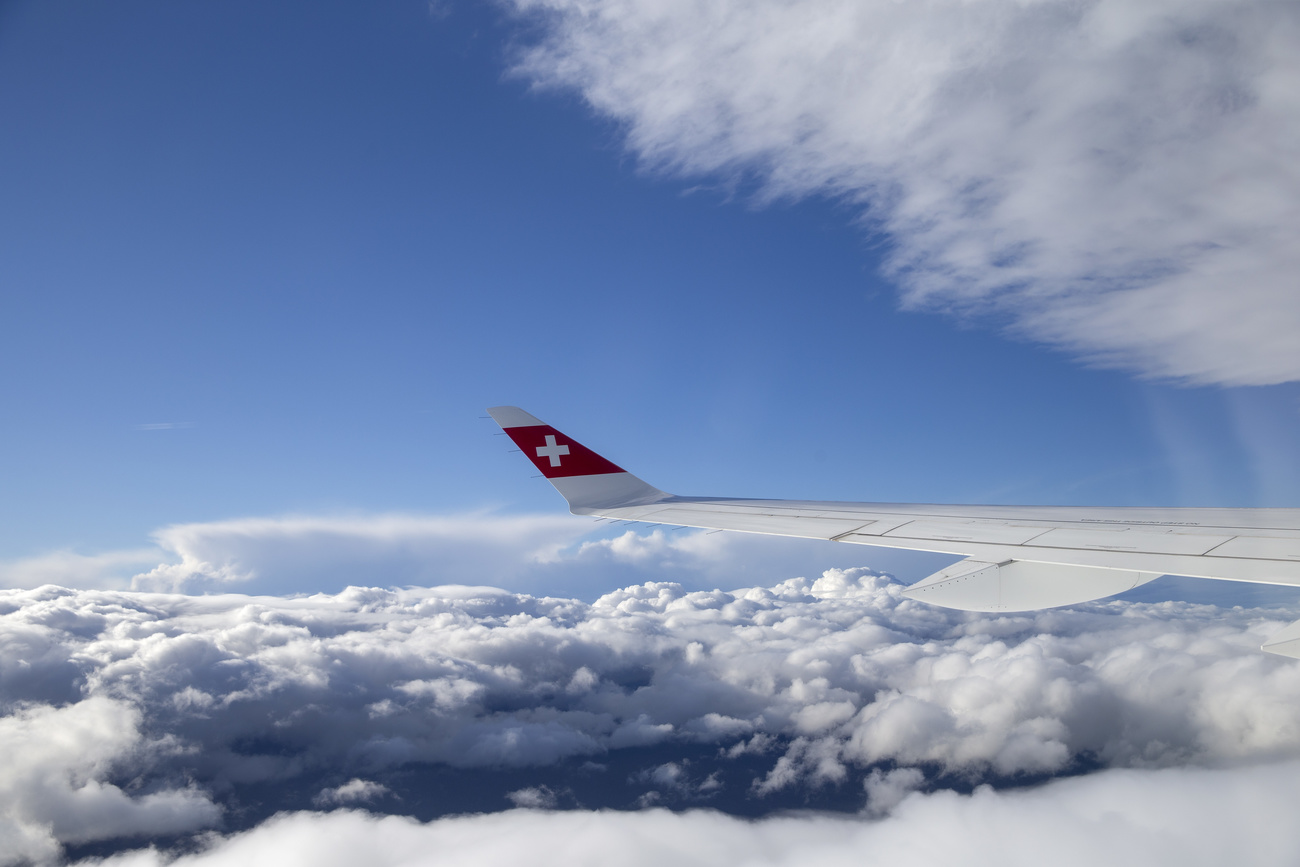
More
Tax on airline tickets wins sky-high public support
In theory, the public is behind the idea. A recent survey suggested that 72% of Swiss respondents would support increasing the price of airline tickets for climate reasons. In the event of an introduction, 42% of the 1,000 respondents back a levy of CHF30 for short-haul flights and CHF120 for long-haul flights; 50% agreed with higher charges.
Will the idea fly if it goes to a nationwide vote? It’s hard to say. An earlier poll commissioned by the Tamedia media group indicated most Swiss were unwilling to pay more to mitigate climate change.
Amella stubs out her cigarette and reaches for her passport and boarding card to indicate that it’s time to go. She is in favour of a tax. “I think it’s better if people take fewer flights,” she says. “If I travel to France or countries close to Switzerland I take the train or share a car I try to be careful but the problem is I just like travelling too much.”
More
Edited by Sabrina Weiss

In compliance with the JTI standards
More: SWI swissinfo.ch certified by the Journalism Trust Initiative











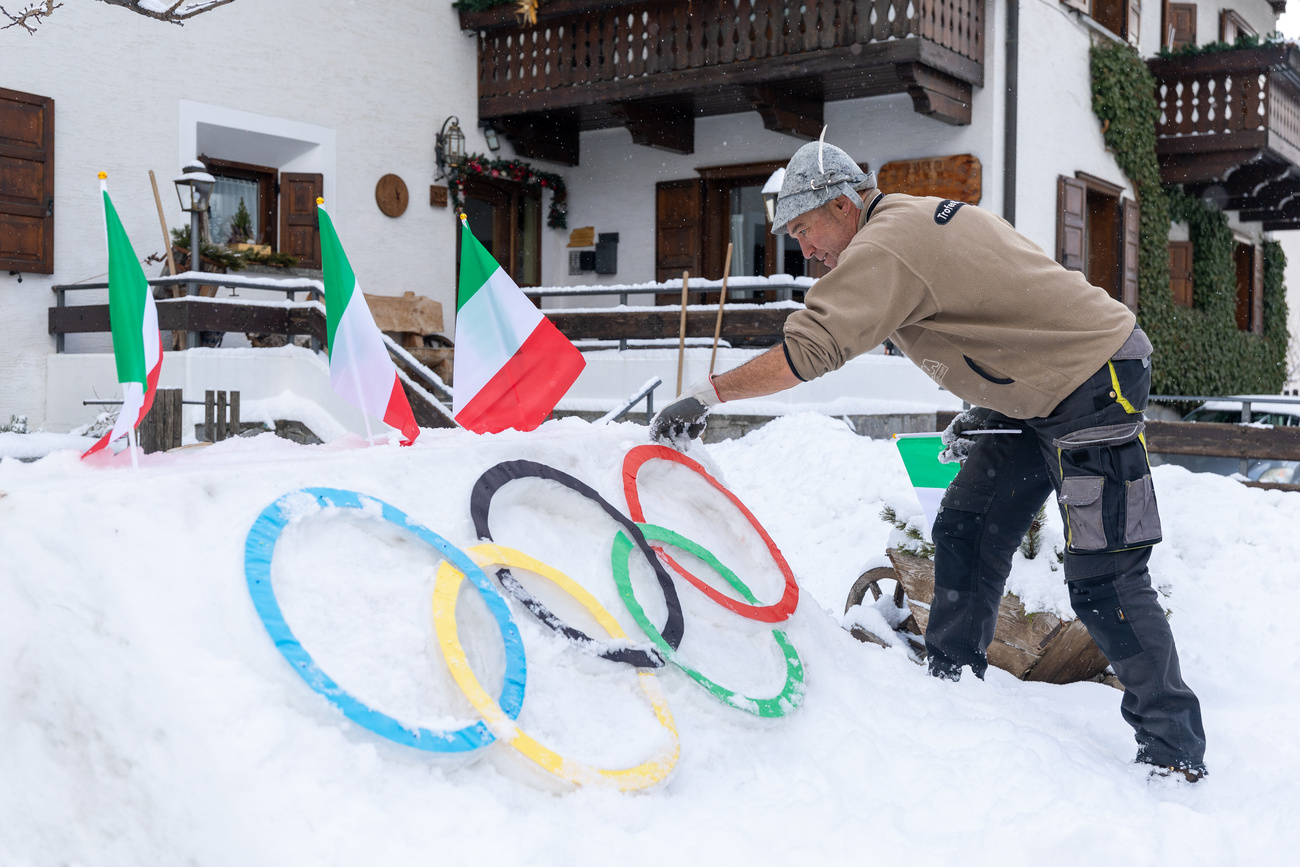




















You can find an overview of ongoing debates with our journalists here . Please join us!
If you want to start a conversation about a topic raised in this article or want to report factual errors, email us at english@swissinfo.ch.